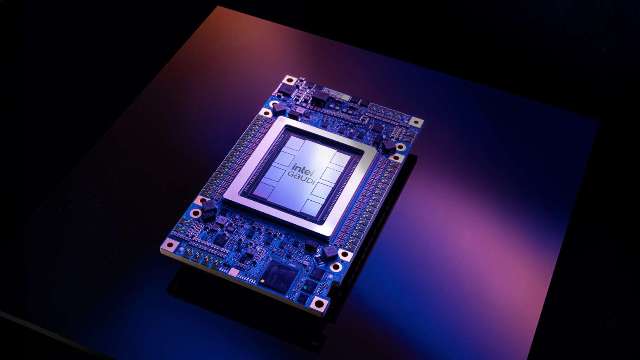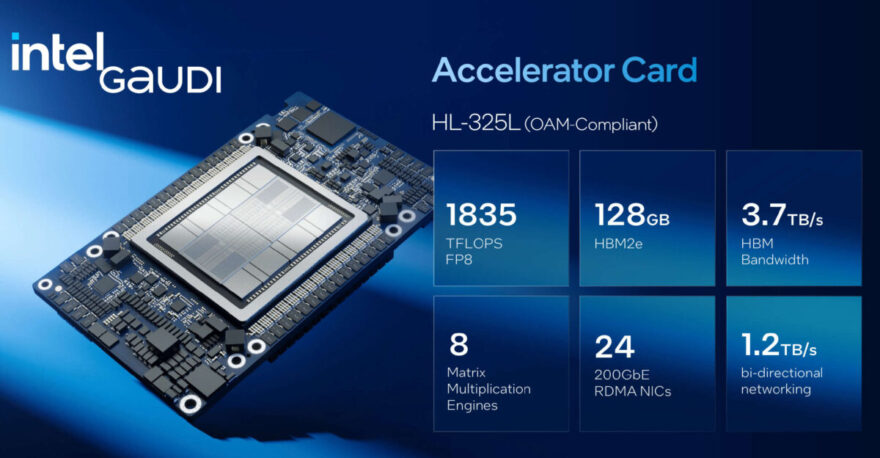Intel Gears Up with Gaudi 3 to Challenge Nvidia’s Dominance
Solomon Thompson / 9 months ago

Intel has made a bold move in the competitive AI chip market by unveiling the Gaudi 3, developed with the advanced 5nm technology from TSMC. This launch signals Intel’s aggressive stance against Nvidia’s stronghold in the industry. The Gaudi 3, celebrated for its superior inference performance and power efficiency, aims to redefine the benchmarks for AI accelerators.
A Leap in AI Performance and Efficiency
Intel’s Gaudi 3 stands out with its promise of a 50% increase in inference performance and a 40% boost in power efficiency over Nvidia’s H100, at a much lower cost. This development heralds a new era for enterprises seeking to leverage generative AI at scale, offering a 4x jump in AI computing for BF16 and a 1.5x improvement in memory bandwidth compared to its predecessor, Gaudi 2.
Strategic Design and Market Positioning
The transition to TSMC’s 5nm process for Gaudi 3, from the 7nm used in Gaudi 2, showcases Intel’s commitment to pushing the envelope in chip design and performance. Intel CEO Pat Gelsinger emphasized the need for more suppliers in the market, hinting at an “extremely good” total cost of ownership that Gaudi 3 promises to offer, although specific pricing details remain undisclosed.
Broad Availability and Industry Support

Slated for availability to OEMs including Dell, Hewlett Packard Enterprise, Lenovo, and Supermicro in the second quarter of 2024, with a wider release expected in the third, Gaudi 3 has already attracted a lineup of customers and partners. Companies like Bharti Airtel, Bosch, and IBM, among others, are gearing up to integrate Intel’s latest offering into their operations.
Intel is not just stopping at hardware advancements but is also aiming to foster an open platform for enterprise AI, collaborating with industry giants such as SAP, RedHat, and VMware. This initiative focuses on accelerating the deployment of secure generative AI systems, powered by cutting-edge retrieval-augmented generation technology.
As Intel sets its sights on Nvidia’s significant market share, the Gaudi 3 represents a critical step towards diversifying and strengthening the AI chip landscape. With the backdrop of declining sales in its Data Center and AI division, Intel’s strategic pivot towards AI chip innovation could very well redefine its position and influence in the data center market.



















